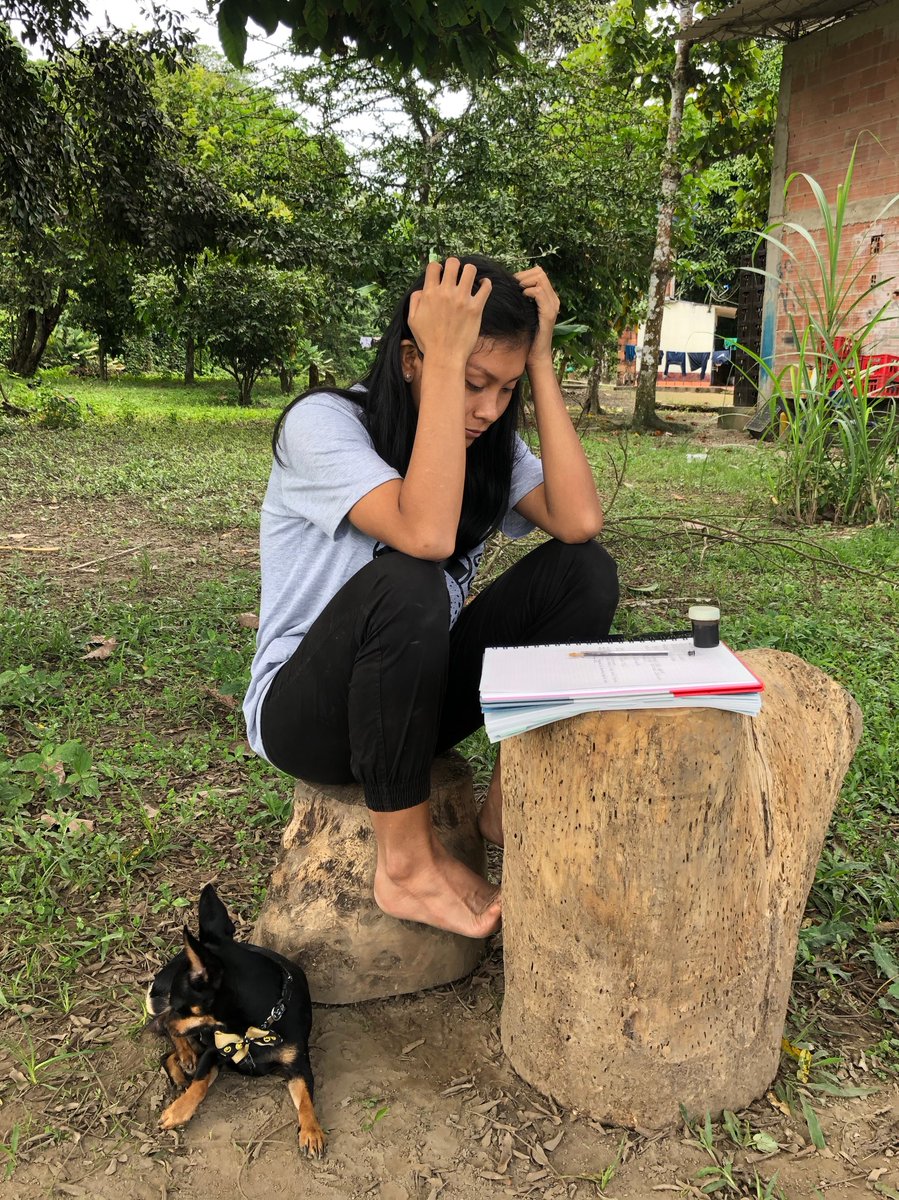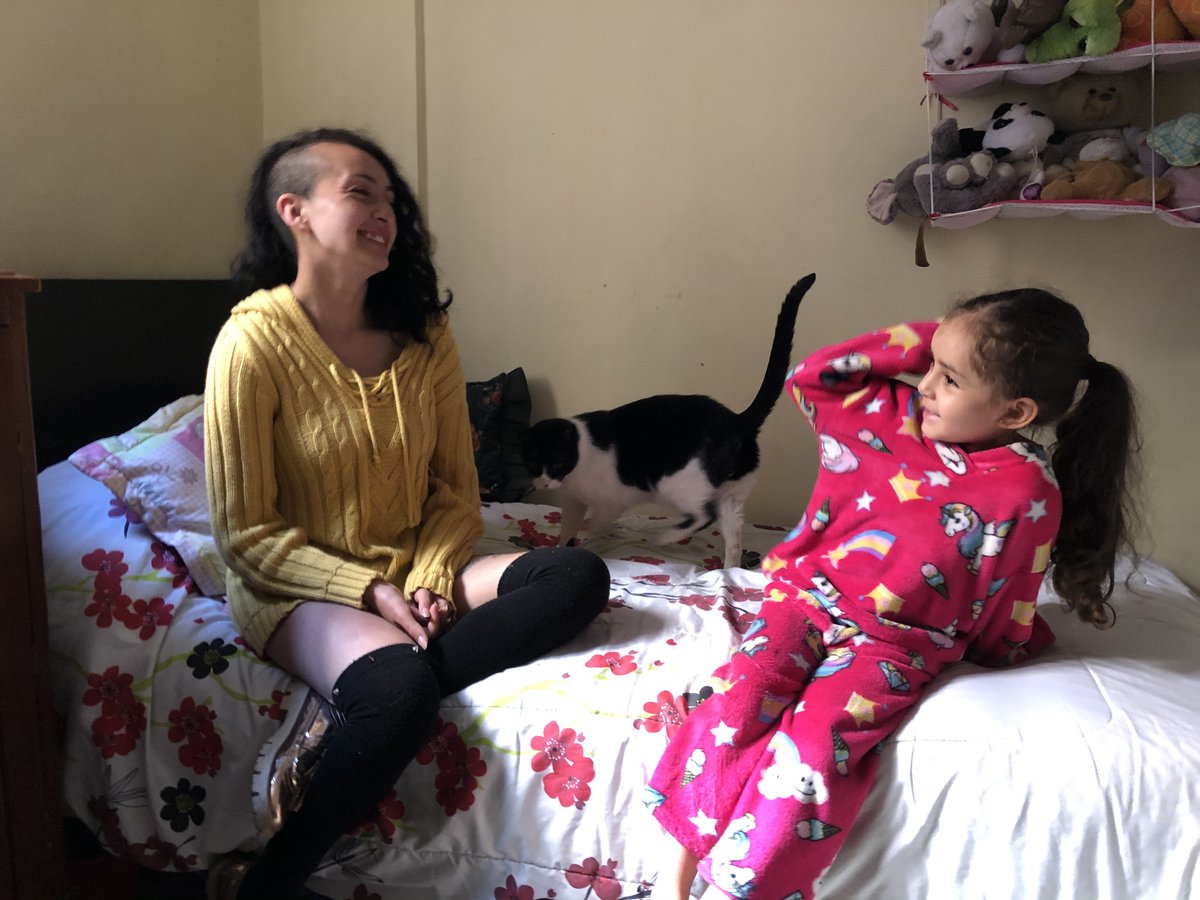NEW: The pandemic is driving millions from Latin America’s universities, threatening decades of regional achievement that moved entire communities out of poverty.
Why is this happening?
Why does this matter for the region? Follow here. https://www.nytimes.com/2020/09/04/world/americas/latin-america-education.html?smid=tw-share">https://www.nytimes.com/2020/09/0...
Why is this happening?
Why does this matter for the region? Follow here. https://www.nytimes.com/2020/09/04/world/americas/latin-america-education.html?smid=tw-share">https://www.nytimes.com/2020/09/0...
In the last 20 years, the number of LatAm university students soared, growing from 20 to 50 percent of the college-age population. Many from previously excluded groups — Indigenous, rural, Black students — became the 1st in their families to go to college.
That’s under threat.
That’s under threat.
Why are so many LatAm students leaving their studies amid the pandemic? Many face a crushing set of problems: Lost jobs w no safety net, unemployed parents, no computer, no internet, no cellphone, no money for data. There is also the challenge of trying to study in violent areas.
If students in other parts of the world think they have it hard, I urge them to read this story.
Here& #39;s Wendi, an Indigenous student trying to log into anthropology class on her mother& #39;s cellphone.
Here& #39;s Wendi, an Indigenous student trying to log into anthropology class on her mother& #39;s cellphone.
This is Gabriela, one of millions of Latin American university students on the verge of dropout. She is a cellist who can no longer pay her tuition. In a desperate call for help, she went on hunger strike recently.
Here she is at strike camp, exhausted.
Here she is at strike camp, exhausted.
Why does this LatAm university exodus matter? College educations were supposed to propel an entire generation into the professional class. But they were also supposed to move the region from commodities-based economies to ones centered around knowledge.
Wendi is a Colombian university student who aims to be the first Indigenous woman to graduate from her school’s anthropology program. But she has no computer, no internet and a terrible cell connection. If she can’t login, she’ll lose her scholarship, forcing her to drop out.
This is Wendi’s family. Her sister, Johana, a lawyer, is the only person in the community with a university degree. Her brother, Jefferson, is also studying law, and struggling to stay in school amid the pandemic.
This is Wendi& #39;s community recently. They dance twice a week, with many of the dances dedicated to prosperity. This is the "baile de la cosecha," a harvest dance. Since the pandemic begun, the community& #39;s main way of making money — visits from tourists — has disappeared.
Lastly, this is Lina Prieto, one of many Latin American university students who have already dropped out. Lina is a former FARC fighter who spent three years in prison for guerrilla activity and then funded the early years of her education by washing car windows in the street.
Lina had hoped to write the next great Latin American novel, tracing her story and that of her family. She also hoped to cover often hidden topics, including sexual abuse. But when the pandemic hit, she lost her job as a receptionist, meaning she could no longer pay her tuition.
But the best part of studying, Lina said, was that it allowed her to put her daughter into an acclaimed preschool on campus. “In my head I had already secured my daughter’s education,” she said.
The pandemic forced Lina to confront the precarious nature of the life she had built. The preschool was only for the children of students and staff. So when Lina had to drop out of school, Luna lost her spot, too.

 Read on Twitter
Read on Twitter






